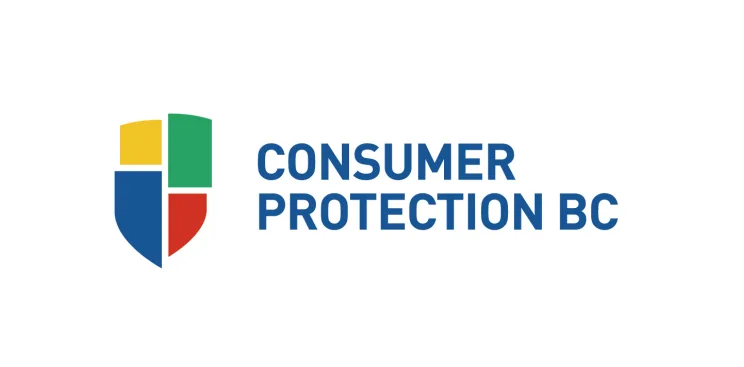
If I sign a contract with someone who is selling door-to-door, can I cancel?
When you hire someone who comes to your door, special protections apply. For example, the contract must include certain information and you have special cancellation rights. Learn about your rights for door-to-door and other direct sales contracts.
What you should know
When you hire someone who comes to your door, you are making what the law calls a direct sales contract. These contracts are entered into in person at a place other than the service provider’s permanent place of business.
In addition to the rights you have when making any contract and hiring anyone, special rules apply to direct sales contracts.
(These rules do not apply if the contract is for services under $50, or if you invited the service provider into your home more than 24 hours ahead of time.)
A direct sales contract must include this information:
the service provider’s name, address, and telephone number
a detailed description of the goods or services to be supplied under the contract
the total price under the contract, as well as an itemized breakdown of the price and any taxes, shipping and other charges
a notice of your cancellation rights
any restrictions, limitations or other terms or conditions that may apply to the supply of the goods or services
the terms of payment (e.g., payment in full up front, or upon completion milestones)
the name of the individual who signs the contract on behalf of the service provider, along with their signature
the place where the contract is entered into
For the contract to be legally binding, the service provider must give you a copy of the contract at the time the contract is entered into.
The service provider can only require a down payment of $100 or 10% of the total price, whichever is less. If they require a larger down payment, the contract is not binding on you.
“A guy came to my door saying he could pave my driveway for a great price, as he had material left over from another job in the neighborhood. I signed a contract. Then I phoned around and no one in the neighbourhood seemed to have heard of this company. I contacted the Better Business Bureau, and it turns out this company is well known for doing shoddy work and charging a lot. Thankfully I was still within the 10-day cooling-off period, so I cancelled the contract.”
– Tim, Nanaimo, BC

On signing a direct sales contract, you have a 10-day “cooling-off period” after receiving a copy of the contract. This means you can cancel the contract for any reason. See below under "Deal with the problem" for the steps to take to cancel the contract.
If you cancel during the cooling-off period, the service provider must provide a refund within 15 days of cancellation.
If the contract doesn’t include the information a direct sales contract is required to include, you have up to one year after receiving the contract to cancel it. See below under "Deal with the problem" for the steps to take to cancel the contract.
If the goods or services to be supplied under the contract are not supplied within 30 days of the supply date, you have up to one year after receiving the contract to cancel it. See below under work out the problem for the steps to take to cancel the contract.
You lose this cancellation right if you accept delivery of the goods or services after the end of the 30-day period.
Work out the problem
If you decide to cancel a direct sales contract, notify the service provider in writing. You can use a notice of cancellation form provided by Consumer Protection BC:
If you are cancelling the contract because the goods or services were not delivered on time, you can use our letter template.
Send the notice by email, fax or registered mail so that you have a record of when you sent it.
Keep a copy of the notice of cancellation and proof of delivery (for example, a registered mail receipt).
You are entitled to a refund within 15 days after you give notice that you are cancelling the contract.
If you don’t receive a refund within 15 days, you can contact Consumer Protection BC to make a complaint.
Prevent problems
If someone comes to your door with an offer, ask that they leave you with material to read about their services.
It’s always okay to say “no thanks” or to ask if you can contact them at a later date. Here are ways you can say this:
“Thank you for your time, but I’m not interested.”
“No thank you; I’ve already committed my budget for the year.”
“I’m going to need more time to think about this. Can I call you later to discuss?”
“I’d like to review the offer before I make a decision. Can you leave me with some information?”
If the service provider insists that you sign a contract or put down a deposit right away, claiming that they will offer a special rate, this is a major warning sign. A legitimate service provider will be just as happy to consider your business tomorrow.
Ask for the names and phone numbers of people the service provider has worked for in the past. Phone these references and ask them: what was the quality of the work, was it done on time, and was it within budget?
Contact the local Better Business Bureau to find out what they know of the service provider.
See what other people are saying about the service provider by searching online for their name and the word “reviews” or “complaints”.
Read the fine print before you sign the contract. Ask the service provider to explain what things in the contract mean if you don’t understand them.
Make sure the contract includes:
the date on which the supply of the services will be complete
the service provider’s contact information
when payments are due
any promises the service provider has made about quality
Who can help

Consumer Protection BC
Assistance relating to certain types of consumer problems and contracts in BC.

Better Business Bureau (BBB)
Receives complaints about local businesses that are members.

Competition Bureau
Deals with complaints about false or misleading advertising.

